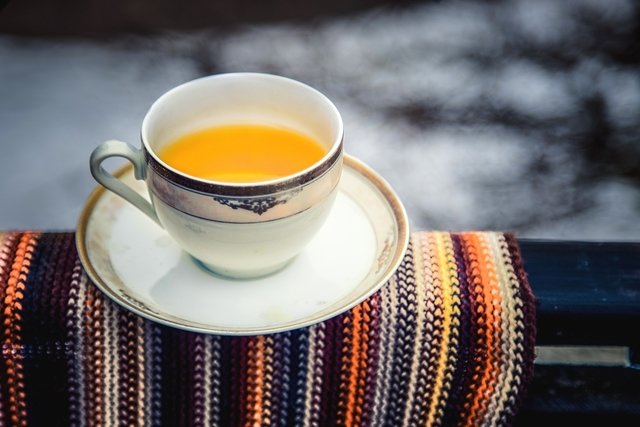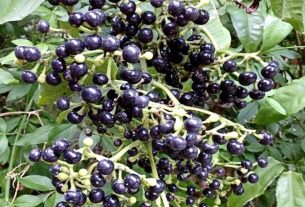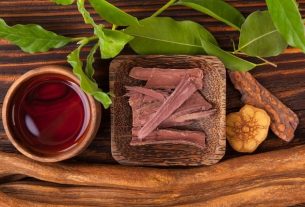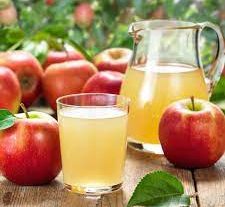Some home remedies can be used to treat kidney stones, such as drinking stonebreaker tea or hibiscus tea, as they have diuretic and anti-inflammatory properties that combat inflammation caused by the passage of these stones through the urinary tract.
Another home treatment option is black mulberry leaf tea, which also has diuretic properties and can be used as a complementary treatment for kidney stones, just like lemon juice.
Ideally, these remedies should always be used under the supervision of a doctor or herbalist. Furthermore, it is advisable to buy the plants in natural product stores, to avoid confusing them with other similar plants. Home treatment for kidney stones must also be complemented with an adequate diet. See how to eat correctly for kidney stones.

1. Stonebreaker tea
The stonebreaker plant, scientifically known as Phyllanthus niruri, It is used to treat kidney stones, as it reduces the growth of crystals that form kidney stones and reduces the growth of existing stones in the kidneys.
Ingredients:
- 1 liter of water;
- 20 g of stonebreaker extract.
How to use:
To prepare the tea you need to boil the water and then add the medicinal plant. Let it rest for 15 minutes, strain and then drink. You can drink this tea up to 3 times a day. Find out more about the benefits of stonebreaker tea.
2. Black mulberry tea
Black mulberry contains substances known as flavonoids, which have antioxidant and anti-inflammatory activity, and this medicinal plant also has diuretic properties that help eliminate kidney stones.
Ingredients:
- 15 g of dried black mulberry leaves;
- 1 liter of water.
Preparation mode:
Place the leaves in boiling water and let them rest for 15 minutes. Then strain and drink the tea 4 times a day.
3. Java tea
The medicinal plant popularly known as java and scientifically as Orthosiphon aristatus It is widely used to treat kidney stones and urinary infections, mainly due to the anti-inflammatory properties it has.
Ingredients:
- 6 g of dried java leaves;
- 1 liter of water.
Preparation mode:
To prepare the tea, place the dried java leaves in boiling water and let it steep for 10 to 15 minutes, then filter. Afterwards, it is recommended to drink the tea 2 to 3 times a day.
4. Lemon juice
Lemon contains a compound called citrate, which helps break down calcium deposits that form kidney stones, so it can be used to eliminate and slow the growth of these stones.
Ingredients:
- 1 whole lemon;
- 500 mL of water.
Preparation mode:
Squeeze the lemon directly into the water, which can be chilled for a more pleasant flavor. The ideal is not to add sugar, but if it is necessary to sweeten, it is recommended to add a little honey.
5. Hibiscus tea
Hibiscus is a plant that can be used to treat kidney stones, as it has diuretic properties, that is, it increases urinary frequency. This plant also helps reduce the deposition of crystals in the kidneys.
Ingredients:
- 2 tablespoons of dried hibiscus;
- 1 liter of water.
Preparation mode:
To make hibiscus tea, you must boil the water and then add the dried hibiscus, let it rest for 15 minutes, strain and then drink. This tea can be consumed up to 4 times a day. See other benefits of hibiscus and how to use it.
6. Leather hat tea
The leather hat, whose scientific name is Echinodorus grandiflorushas diuretic and purifying properties, which helps eliminate kidney stones, in addition to having anti-inflammatory action, promoting symptom relief.
Ingredients:
- 20 g of dried leather hat leaves;
- 1L of water.
Preparation mode:
Place the leather hat leaves in a pan with water and let it boil for 10 minutes. Then strain, wait until it is warm and drink 2 to 3 cups a day.
7. Sauce cha
Parsley has diuretic and cleansing properties as it is rich in iron and flavonoids, which help to increase urine volume and eliminate kidney stones.
Ingredients:
- 1 cup of water;
- 1 teaspoon of chopped fresh parsley including the stem.
Preparation mode:
Boil the water, remove the water from the heat then add the parsley to the boiled water and stir. Leave to rest for 20 minutes and take throughout the day.
Bibliography
- MARQUES, AM; et al. Echinodorus grandiflorus: Ethnobotanical, phytochemical and pharmacological overview of a medicinal plant used in Brazil. Food Chem Toxicol. 109. Pt 2; 1032-1047, 2017
- SAWSAN Ibrahim; JULNAR Usta. Diuretic effect and mechanism of action of parsley. Journal of Ethnopharmacology. 79. 3; 353-357, 2002
- U.S DEPARTMENT OF AGRICULTURE . Parsley raw. Available at: <https://fdc.nal.usda.gov/fdc-app.html#/food-details/1103365/nutrients>. Accessed on 07 Dec 2021
- AL-YOUSOFY Fayed et al. Parsley! Mechanism as antiurolithiasis remedy. American Journal of Clinical and Experimental Urology . 5. 3; 55–62, 2017
- ALYAMI FAHAD; RABAH Danny. Effect of drinking parsley leaf tea on urinary composition and urinary stones’ risk factors. Saudi Journal Kidney Diseases and Transplantantion. 22. 3; 511-514, 2011
- GUL, Zeynep; AS, Manoj. Medical and Dietary Therapy for Kidney Stone Prevention. Korean J Urol. Vol.55, n.12. 775–779, 2014
- PUCCI, Nidia D. et al. Effect of phyllanthus niruri on metabolic parameters of patients with kidney stone: a perspective for disease prevention. Int Braz J Urol. Vol.44, n.4. 758–764, 2018
- BUTTERWECK, Veronika; KHAN, Saeed R. Herbal Medicines in the Management of Urolithiasis: Alternative or Complementary?. Planta Med. Vol.75, n.10. 1095-1103, 2009
- LIM, S.H.; CHOI, C.L. Pharmacological Properties of Morus nigra L. (Black Mulberry) as A Promising Nutraceutical Resource. Nutrients. Vol.11, n.2. E437, 2019
- OUSSAMA, Abdelkhalek; TOUHAMI, Mohamed; MBARKI, Mohamed. In vitro and in vivo study of effect of lemon juice on urinary lithogenesis. Arch. Esp. Urol. Vol.58, n.10. 1.087-1.092, 2005
- JOURNAL OF THE AMERICAN HERBALISTS GUILD. Herbal and Nutritional Treatment of Kidney Stones. 2011. Available at: <https://www.americanherbalistsguild.com/files/journal/vol%2010%20no%202/Kidney%20Stones%20V10N2.pdf>. Accessed on February 12, 2020




